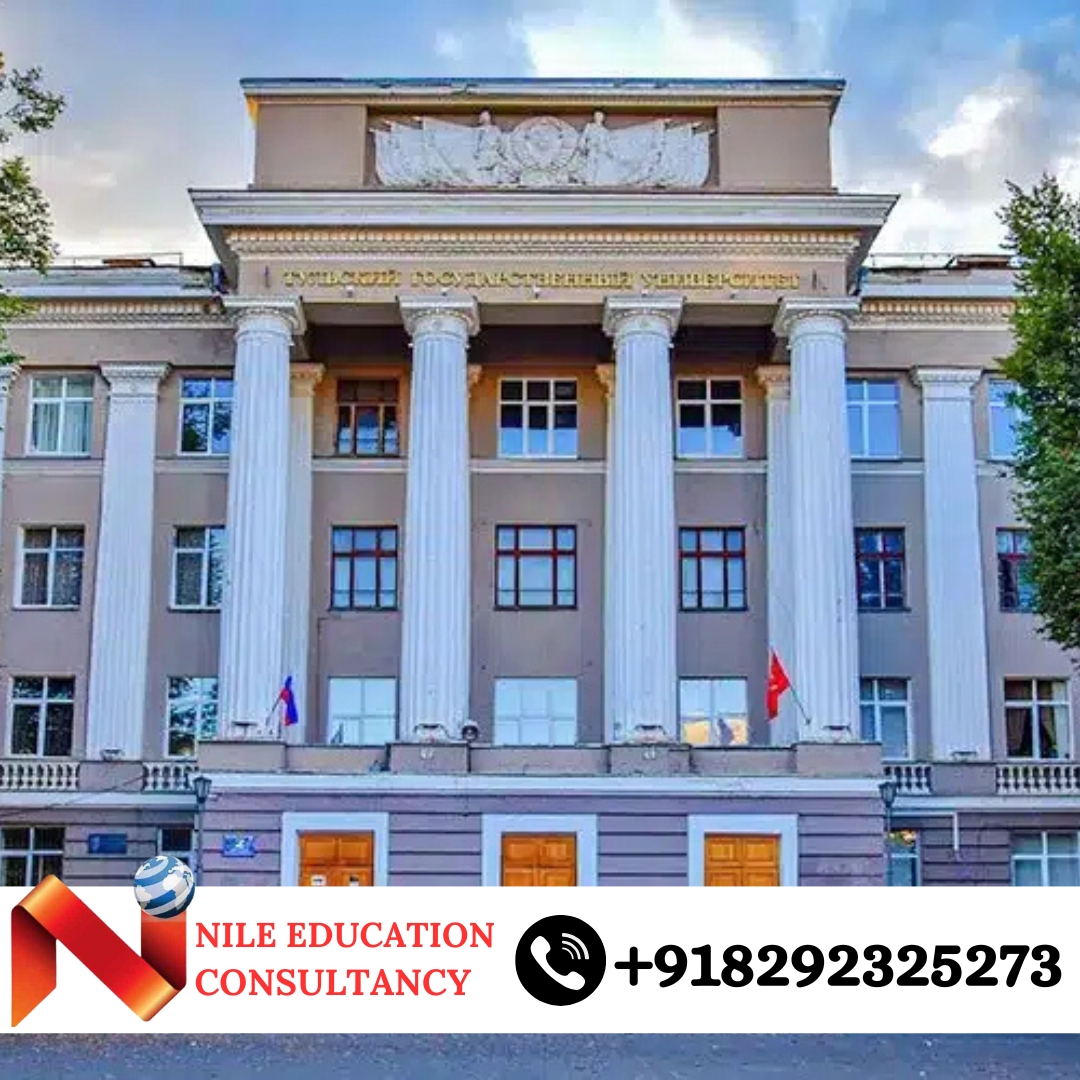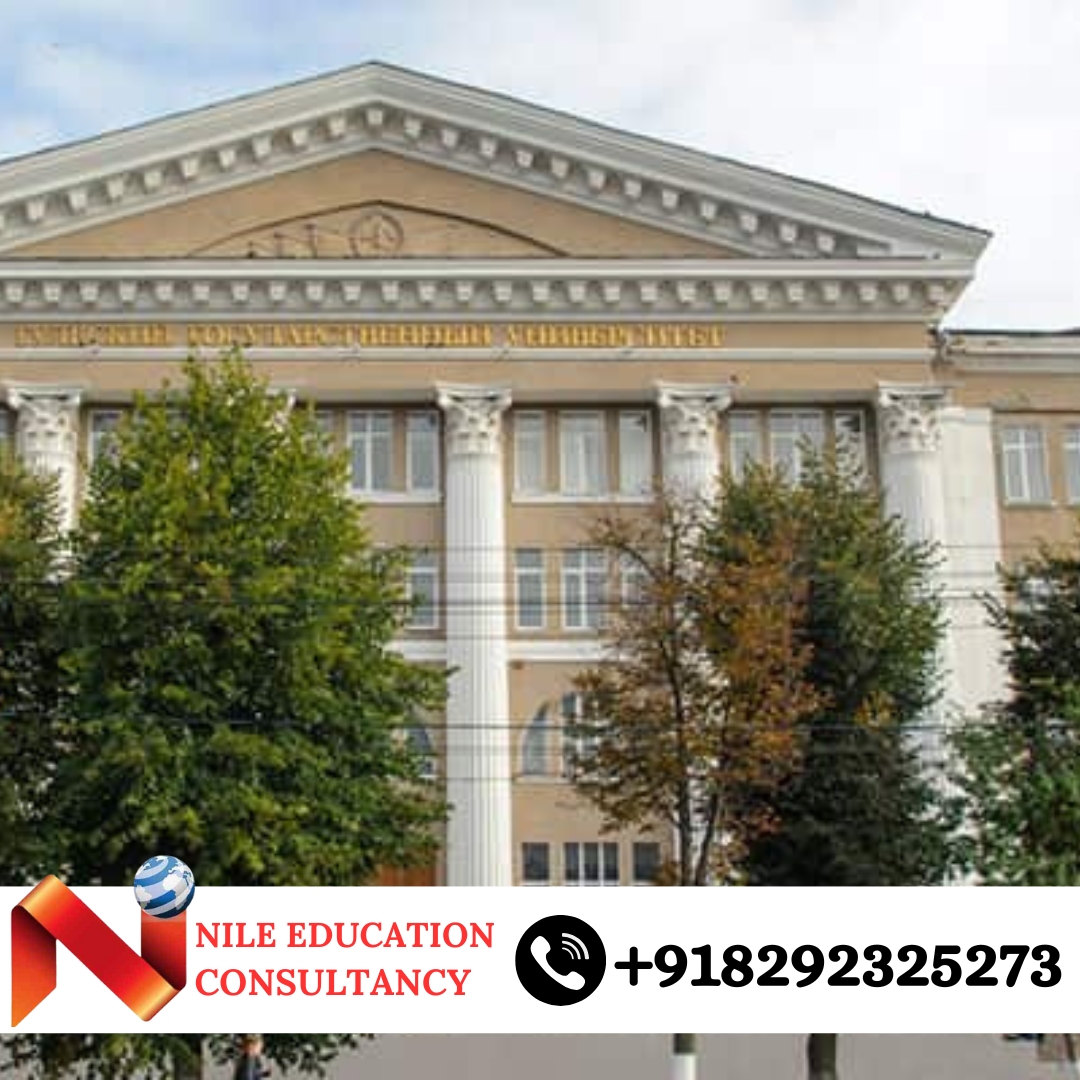info@nileedu.in
info@nileedu.in

Tula State University (TSU), established in 1930, is a prominent public institution located in Tula, Central Russia. As the largest university in the region, TSU offers a diverse range of academic programs across various disciplines, including engineering, humanities, natural sciences, and medicine. With a student population exceeding 20,000, including over 700 international students from more than 50 countries, TSU fosters a multicultural and inclusive academic environment.
| Particulars | Statistics |
| University Type | Public |
| Intake for the MBBS Course | September |
| Processing Time for MBBS Admission | 4-6 weeks |
| Entrance Exam | NEET Exam |
| Location | Tula, Russia |
| Eligibility Criteria | 50% in PCB |
| NEET Exam | Yes, it is compulsory |
| Annual Tuition Fees | $3,800 |
| Course Duration | 5 years + 1 year internship |
| Medium of Education | English Language |
| University Ranking | Country Ranking- 83 |
| University Recognition | WHO, NMC |
| Program | Fees |
|---|---|
| MBBS | $3,800 |
| Year | Semester | Subjects |
|---|---|---|
| 1st Year | 1st Semester | Anatomy |
| 2nd Semester | Anatomy and Histology | |
| 2nd Year | 3rd Semester | Histology, Biochemistry, Physiology cell biology, Microbiology, General pathology |
| 4th Semester | Biochemistry, Micro-Biology, Physiology | |
| 3rd Year | 5th Semester | Pathology, Pharmacology, Micro-Biology, Path Physiology |
| 6th Semester | Pathology, Path Physiology and Pharmacology, Genetics | |
| 4th-6th Year | 7th-12th Semester | General Surgery, Neurology, Primary Care medicine, Obstetrics and Gynecology, Oncology, Internal Medicine, Pediatrics, Internal medicine, Neurology and Psychiatry, Psychology, ENT, Emergency Medicine, and Cardiology |
Tula State University's six-year, English-taught MBBS program aims to provide students with a solid academic understanding and useful clinical skills. It follows international medical standards and includes hands-on training in modern hospitals, preparing students for global medical careers.
| Particulars | Ranking |
|---|---|
| Ranking in the Country | 83 |
Tula State University offers a range of scholarships to support students financially and encourage academic excellence. These include merit-based scholarships for students with strong academic performance, need-based aid for those facing financial difficulties, and government-funded scholarships provided through Russian programs for international students.
At Nile Education Consultancy, we make your dream of studying MBBS at Tula State University simple and stress-free. From helping you select the perfect medical course that matches your goals to securing your admission at Tula State University, we’re by your side at every stage. At Nile Education Consultancy, our expert team ensures a smooth journey — handling paperwork, guiding you through the application process, and offering personalized support so you feel confident and cared for from start to finish. Our expert counsellors help with documentation, application submission, visa processing, and even pre-departure support. With years of experience and a student-first approach, Nile Education ensures a smooth admission process and a successful start to your medical journey abroad. Trust us to turn your ambitions into achievements!
view Photo Gallery








Tuition fees are USD 4,000 per year.
Hostel fees are approximately USD 300 per year.
Total 6-year MBBS cost (approximate) is USD 25,800.
Tula State University is a public (government) university, established in 1930.
Yes, it is recognized by NMC & WHO, offers English-medium instruction, and provides quality medical education with practical exposure.
Tula State University's FMGE passing percentage is 33.33%.
QS EECA University Rankings 2022: 401–450.
Specific acceptance rate data is not publicly available.
Tuition fees for Indian students are approximately INR 2.45 lakhs per year.
Hostel fees: ~INR 21,950 per year.
Total 6-year MBBS cost (approximate) is INR 16.2 lakhs.

The best kind of education is observation of the outside world!